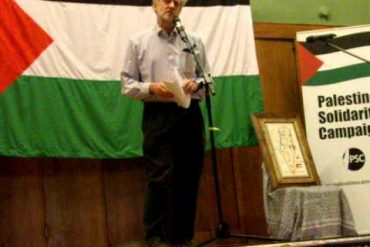The Guardian’s Kenan Malik weighed in on the row over Gary Lineker’s tweet, – that the UK’s “stop the boats” policy deploys “language that is not dissimilar to that used by Germany in the 30s” – by rejecting the Nazi comparison while railing against Britain’s “shameful response to Jewish refugees” during WWII.
Lineker, a former footballer turned BBC sports presenter, was suspended by the corporation for his tweet, which was a reaction to a British law to stem the flow of asylum-seekers, for breaching their impartiality rules. However, he was later reinstated upon mounting public criticism.
In the op-ed, (‘Stop the boats’ does echo the language of the 30s – but those words were English”, March 19), Malik wrote the following, as examples of Britain’s historic indifference or hostility to the plight of Jews fleeing antisemitic persecution.
At the turn of the 20th century, a panic about Jews fleeing pogroms in eastern Europe led to Britain’s first immigration law, the Aliens Act 1905 . Much of the debate is eerily familiar. Many Jewish refugees, critics claimed, “were never persecuted but came with the persecuted”; most were “paupers” and would be “taking the bread out of English mouths”.
…
Three decades later, many of these themes were resurrected in the debates about Jewish refugees fleeing Nazi persecution. Numerous studies have detailed how British policy was defined by two sentiments: sympathy for Jews facing the horrors of Nazism and an insistence that their plight should not be seen as Britain’s problem.
Britain often lauds itself for its generosity towards Jewish refugees, especially the Kindertransport under which, during 1938 and 1939, about 10,000 children were brought to safety in Britain. But as Louise London reminds us in Whitehall and the Jews 1933-1948, perhaps the definitive account of British policy, Britain’s strategy “was designed to keep out large numbers of European Jews – perhaps ten times as many as it let in…. Escape to Britain was an exception for the lucky few; exclusion was the fate of the majority”.
Then, as now, there was a desire not to allow refugees to set foot on British soil before deciding their fate; in 1938, Britain imposed a visa system on migrants from Germany and Austria, “to stem… the problem at its source”, as Paulsson puts it.
When war was declared in September 1939, about 70,000 Germans and Austrians in Britain, including Jewish refugees, became classed as “enemy aliens”. Specially created tribunals declared most Jews not to be a threat. Nevertheless, 569 were interned, and another 6,700 had restrictions placed on them.
Glaringly absent from Malik’s examples of of Britain’s “shameful response to Jewish refugees” was the “White Paper” of 1939. The White Paper, implemented as a reaction to the violence of the Arab Revolt led by the pro-Nazi Haj Amin al Husseini, rejected the idea of partition – previously endorsed by the League of Nations, the Peel Commission and in the Balfour Declaration – and severely limited Jewish immigration to Palestine.
The ‘White Paper’, our colleague David Litman recently observed, “came at the direst of times for Jews facing extermination by the Nazi regime, dooming to death untold numbers who could not reach Palestine”.
So, why did Malik omit the White Paper? We of course can’t know for sure.
However his elision of that policy certainly is consistent with the Guardian’s insistence on never highlighting historical examples which remind readers of Palestinian belligerence and hostility to Jews that occurred before June 10th, 1967 – the date the outlet would have you believe that the history of the Israeli-Palestinian conflict began.
The Guardian is happy to express sympathy for historical Jewish suffering only insofar as such expressions don’t complicate, or in any way contradict, their reductive narrative which – to paraphrase Niamh Jiménez – casts Palestinians as a morally pristine class of saints and Zionists as an ignoble group of oppressor fiends.
Related Posts
Financial Times fails to fact-check Palestinian claim on building permits





